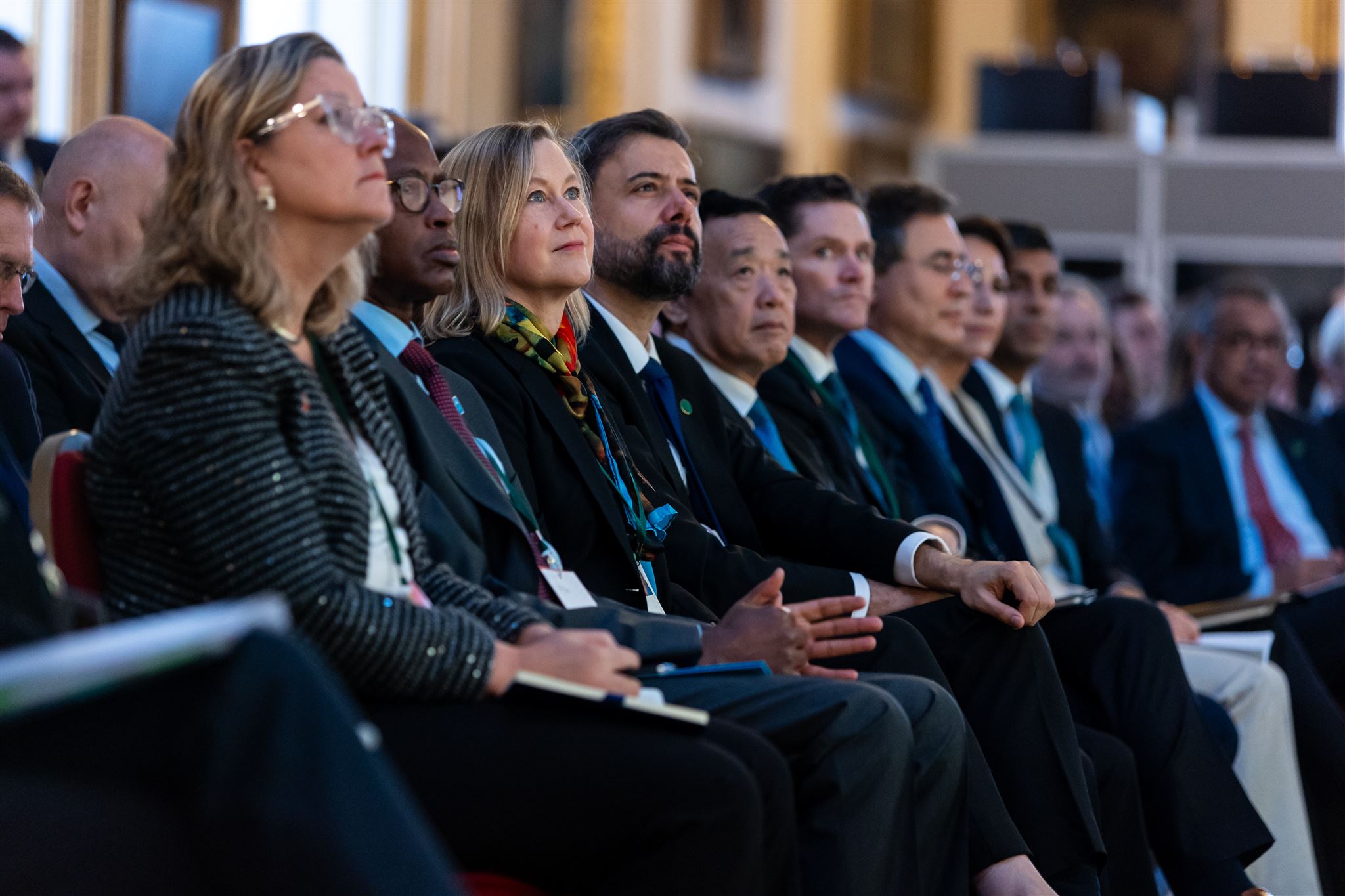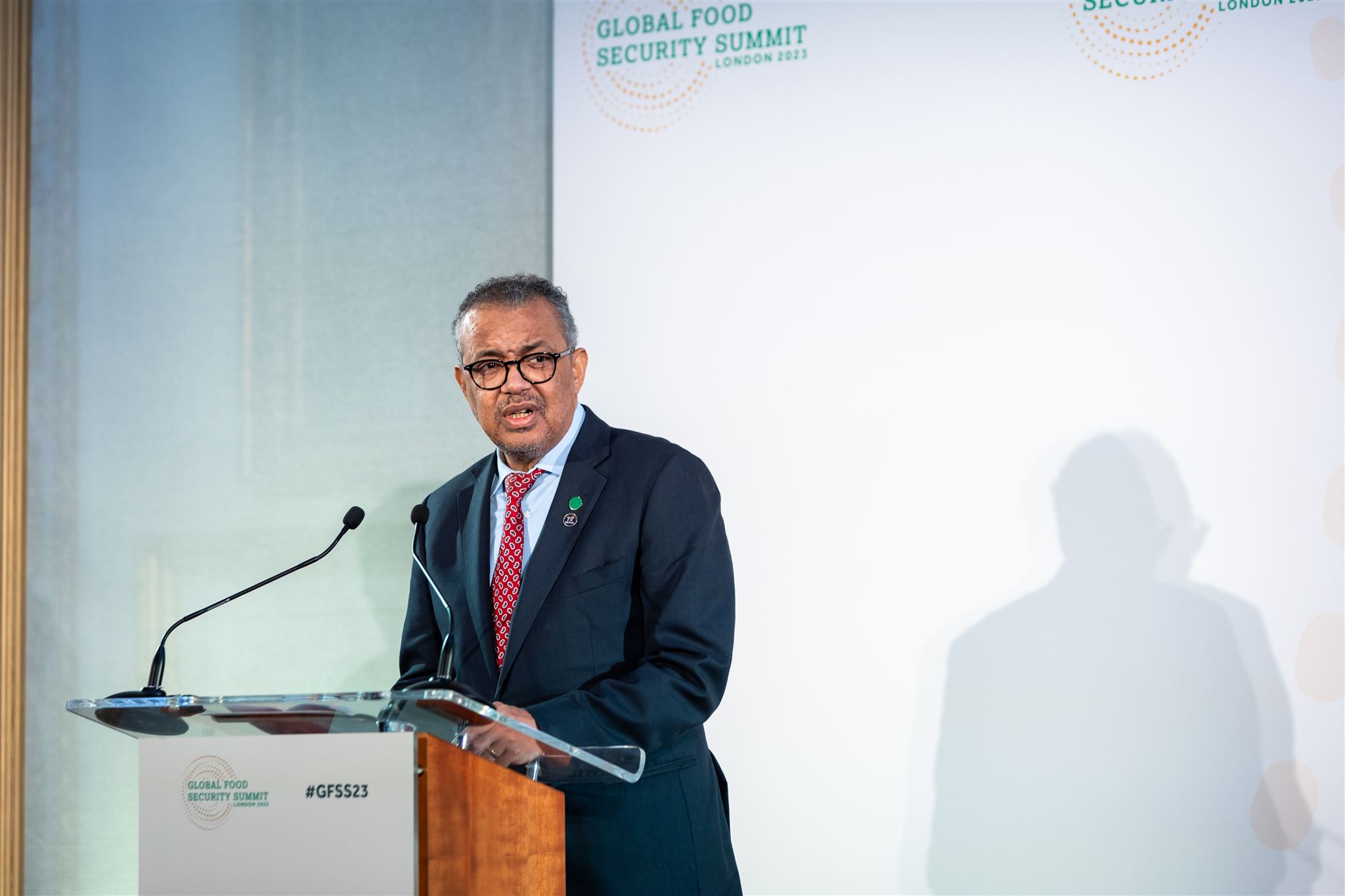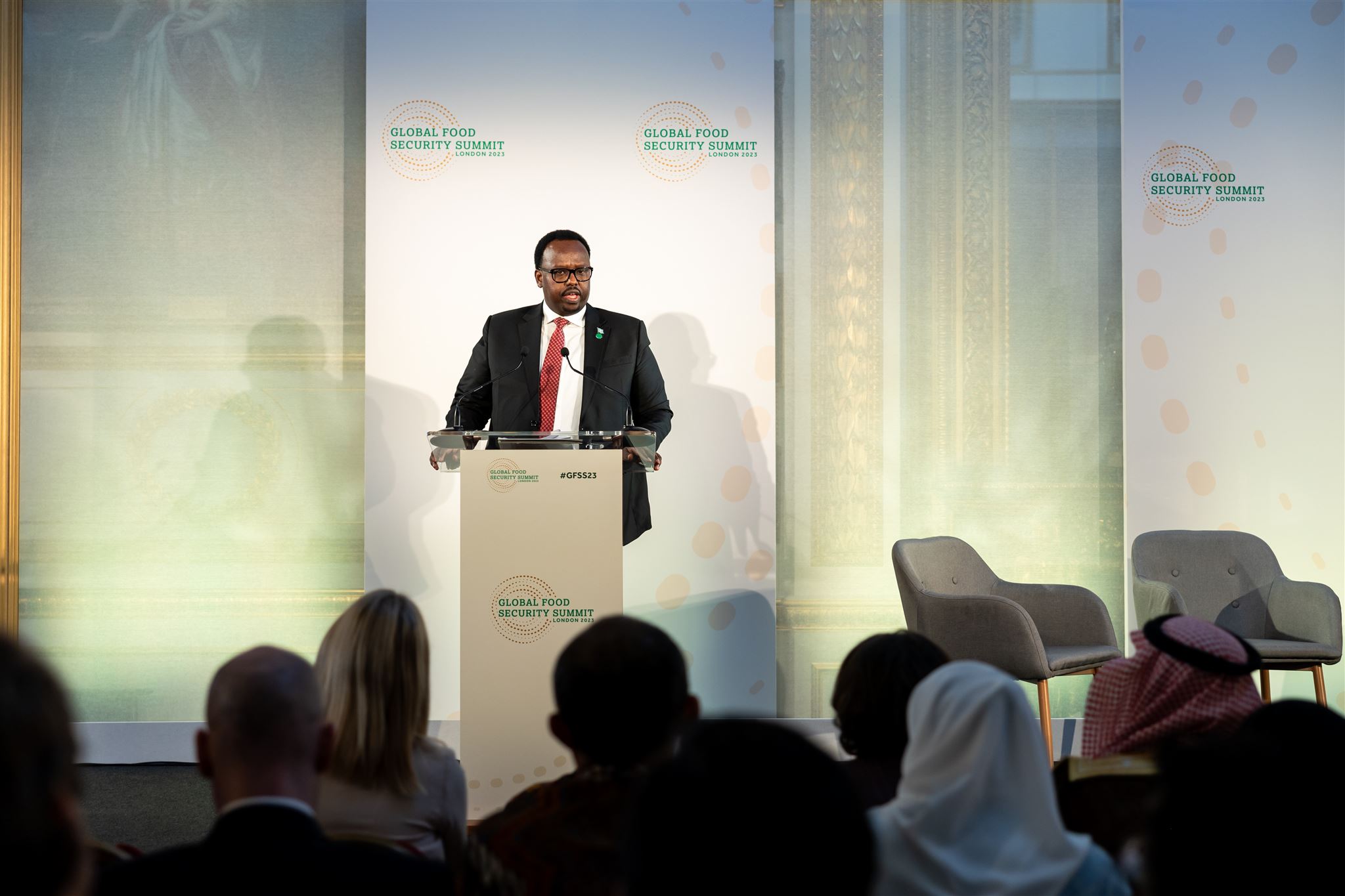
On 20 November, the Global Food Security Summit gathered ministers, policy makers, civil society voices and researchers in London to focus international attention on the worsening food crisis and galvanise support for sustainable solutions to achieve Sustainable Development Goal 2. Opened by high-level representation of the host nations UK Prime Minister Rishi Sunak, President Hassan Sheikh Mohamud of Somalia and UAE Minister of Climate Change and Environment H.E. Mariam Almheiri, the Summit highlighted the importance of anticipatory action to build resilience, avert deepening food and nutrition insecurity and address the worst impacts of climate shocks. It emphasised the urgent need for resilient and nutritious food systems to deliver healthy diets and prevent malnutrition. The Summit also positioned innovation, science and technology, the unlocking of climate finance as well as partnerships as critical tools to deliver these solutions. See the Joint Ministerial Statement.

Protracted conflicts, worsening climate change and environmental destruction, a cost of living crisis, crippling debt and rising inequality are exacerbating the fragility of food systems. The world is running out of time to deliver the promises laid out in the Sustainable Development Goals for people, planet and prosperity. The World Health Organisation’s Director General Dr Tedros Adhanom Ghebreyesus captured this urgency in his remarks: “one million children a year die because of wasting. By the time we have finished our meeting today, about 900 children will have died because they don’t have enough food or care – children whose lives have only just begun.”
Has the Summit delivered what it promised – to spur joint action and unlock the resources needed to tackle these global challenges?
Summit outcomes
Commitments made at the Summit included efforts to both save lives now from deteriorating food and nutrition security as well as build resilience to future crises. Find an account of these below.
Save lives now
- PM Sunak announced up to £100 million in humanitarian funding for countries worst affected by food insecurity in Ethiopia, Sudan, South Sudan, the Sahel, Afghanistan and Malawi. An additional UK pledge of up to £100 million for resilience building for Somalia was announced to address climate shocks, provide food security and avert future humanitarian crises.
- The Child Nutrition Fund (CNF) was inaugurated, an innovative financing mechanism established by UNICEF, FCDO, BMGF and CIFF that aims to transform the way child wasting is addressed with sustainable financing. The CNF also received two commitments: a £16 million by the UK Gov’t and a $50 mln pledge by Sir Chris Hohn of CIFF.
Build resilience
- The publication of new WHO guidelines for the prevention of wasting, the most life threatening form of child malnutrition, marks an important shift in thinking about wasting with a renewed focus on averting the negative impacts of child malnutrition.
- The newly launched UK-CGIAR Centre for Collaboration and Innovation in Science and Technology aims to foster new collaboration between CGIAR, UK science institutes and research centres across the globe to tackle the interconnections of food security and climate. It will focus on enhancing nutrition and tackling climate change with sustainable crops and climate-smart agriculture.
- The FCDO also announced new UK support to the Crop Trust to protect biodiversity.
Summit outcomes were warmly welcomed by UK civil society voices who commended the UK Government for their leadership as an important step but stressed the need for sustained leadership on food and nutrition security to achieve real impact.
The UK’s White Paper on International Development, released at the Summit, gives a few clues to the country’s priorities moving forward: it notes the need to scale up efforts to achieve the SDGs; to reform and mobilise international finance systems to unlock resources; to leverage innovation, science and technology to accelerate progress; to focus on women and girls and fragile contexts; to increase adaptation and resilience building efforts in face of climate crisis. It also commits to spending 50% of ODA in the poorest countries. The UK development community welcomes the paper but cautions that it cannot be achieved without returning to 0.7% target and sufficient climate financing. See statements from Bond, Oxfam GB, Save the Children UK, CIFF’s Kate Hampton, and CGD’s Ian Mitchell.

Leadership, accountability and financing are critical to take forward this momentum to COP28 and into 2024. With climate negotiations set to kick off in Dubai in nine days time, the Deputy PM of Somalia H.E. Salah Ahmed Jama noted “my message for COP28: we need to ensure a scaling of climate financing to scale food systems issues – food systems supply lines, resilience programming and human development initiatives.” World leaders and advocates must strengthen the connections between climate, malnutrition and food insecurity at COP28’s Health and Food Days as well as the Emirates Declaration on Resilient Food Systems.








